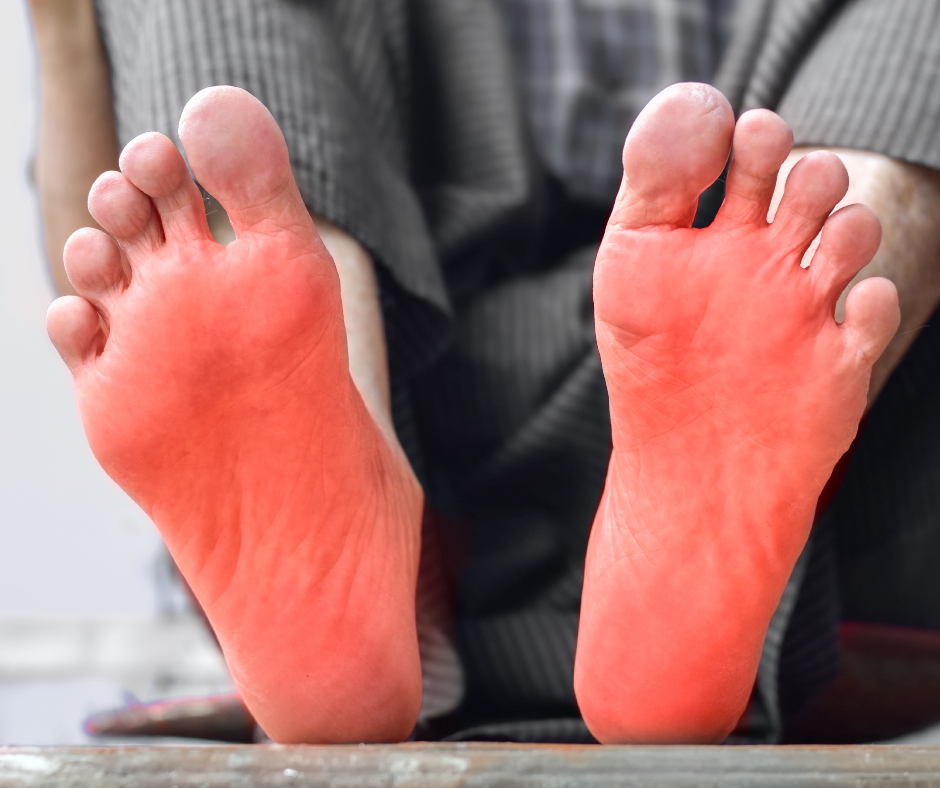
Have you ever wondered, “Why do my feet feel hot?” You’re not alone. Hot feet can be uncomfortable, distracting, and sometimes even painful. While it might seem minor, persistent heat in your feet could be a sign of something more serious.
Read on as Syracuse Podiatry provides important information about hot feet so you can determine what may be causing your discomfort.
Common Causes of Hot Feet
- Peripheral Neuropathy
One of the most common causes of hot feet is nerve damage, especially from conditions like diabetes. This is called peripheral neuropathy, and it often causes burning, tingling, or hot sensations. - Poor Circulation
If blood isn’t flowing well to your feet, they may feel warm or even burning. Conditions like peripheral artery disease (PAD) can restrict blood flow. - Athlete’s Foot
This fungal infection can cause burning, itching, and a hot sensation. It’s often accompanied by redness and peeling skin. - Vitamin Deficiencies
Lack of B vitamins, especially B12, can lead to nerve issues, which might make your feet feel unusually warm. - Hormonal Changes
Menopause and thyroid imbalances can both cause sensations of heat in the feet, due to shifting hormones affecting nerve sensitivity and circulation. - Nerve Compression
Conditions like tarsal tunnel syndrome (similar to carpal tunnel but in your foot) may cause burning or heat due to compressed nerves.
When to See a Doctor
If hot feet are persistent, painful, or worsening, consult a doctor. This is especially important if you have risk factors like diabetes, high blood pressure, or vitamin deficiencies.
At-Home Remedies for Hot Feet
- Cool Foot Soaks: Soak your feet in cold (not ice) water for 15–20 minutes to reduce heat.
- Foot Massage: This improves circulation and helps relieve pressure.
- Proper Footwear: Wear breathable shoes and moisture-wicking socks.
- Stay Hydrated: Dehydration can worsen circulation issues.
- Manage Blood Sugar: If you’re diabetic, keeping your levels stable can prevent nerve damage.
Hot feet can stem from something as simple as fatigue or as complex as nerve damage. If the sensation is new or painful, it’s best to get it checked.
For advice related to any podiatric concerns you’re facing, the expert team at Syracuse Podiatry is here to help guide you. Contact us today so Dr. Ryan L. D’Amico, Dr. Donal M. Erickson, Dr. Keith Sherman, and Dr. Nicholas Cronin can elevate your foot health and help your feet feel their best.
